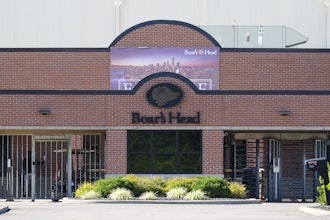Cabot Corp., the second largest carbon black manufacturer in the U.S., agreed Tuesday to pay a $975,000 civil penalty and spend an estimated $84 million on technology to control air pollution at its three facilities in Franklin and Ville Platte, La., and Pampa, Texas, federal officials said.
The Louisiana Department of Environmental Quality, a co-plaintiff in the case, will receive $292,500 of the penalty, according to the proposed consent decree outlined by the Department of Justice and the Environmental Protection Agency.
Carbon black is a fine carbonaceous powder used as a structural support medium in tires and as a pigment in a variety of products such as plastic, rubber, inkjet toner and cosmetics. It is produced by burning oil in a low oxygen environment; the oil is transformed into soot. Because the oil used in the process is low value high sulfur oil, the manufacturing process creates significant amounts of sulfur dioxide and nitrogen oxide, as well as particulate matter.
The Justice Department and the EPA said the proposed decree is the first to result from a national enforcement initiative aimed at bringing such manufacturers into compliance with the Clean Air Act's New Source Review provisions.
The settlement requires that each facility optimize existing controls for particulate matter or soot, operate an "early warning" detection system that will alert operators to any releases, and comply with a plan to control "fugitive emissions" which result from leaks or unintended releases of gases.
"By agreeing to pay an appropriate penalty and install state of the art technology to control harmful air pollution, Cabot Corp. is taking a positive step forward to address these significant violations of the Clean Air Act," Acting Assistant Attorney General Robert G. Dreher of the Justice Department's Environment and Natural Resources Division said in a statement.
"This agreement will serve as a model for how the industry can come into compliance with the Clean Air Act by installing controls that prevent harmful pollution and improve air quality for surrounding communities."
To address nitrogen oxide pollution, officials said Cabot must install selective catalytic reduction technology to reduce emissions and continuous monitoring, and comply with stringent limits. At the two larger facilities in Louisiana, Cabot must also address sulfur dioxide pollution by installing wet gas scrubbers to control emissions and continuous monitoring, and comply with stringent emissions limits.
The measures are expected to reduce nitrogen oxide emissions by about 1,975 tons per year, sulfur dioxide emissions by about 12,380 tons per year, and significantly improve existing particulate matter controls.
Exposure to nitrogen oxide emissions can cause severe respiratory problems and contribute to childhood asthma.
"This is a huge win for the citizens of our district," said U.S. Attorney Stephanie A. Finley of the Western District of Louisiana. "These harmful pollutants can cause serious, long term respiratory harm. This settlement promotes a healthier environment and an opportunity to allow the residents of the district to breathe cleaner air."
Tuesday's order also requires that Boston-based Cabot spend $450,000 on energy saving and pollution reduction projects that will benefit the communities surrounding the facilities, such as upgrading air handling units at municipal buildings in the three communities to more efficient technology.
The proposed consent decree will be lodged with the federal court in Finley's district and will be subject to a 45-day public comment period. The company is required to pay the penalty within 30 days after the court approves the settlement.






















